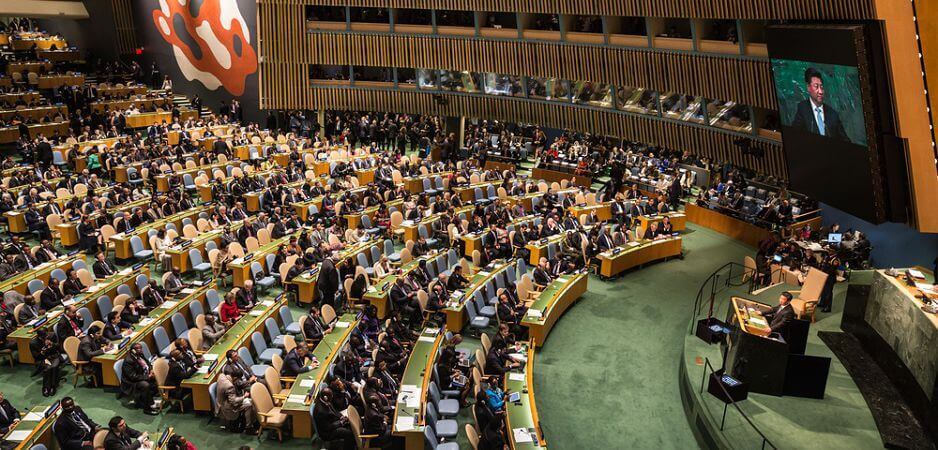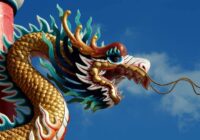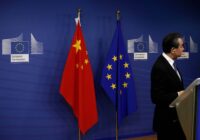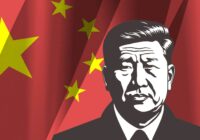Eastern actors are likely to become more Western rather than building an alternative system.
The end of the Cold War saw an era of systemic redefinition, undermining the friend-enemy dichotomy that shaped the international system for half a century. The path of the American century has since been put in jeopardy by an initial — and troubled — period of US-led unipolarity and then by the growth of new powers in the East. Yet the expected emergence of an “Asian century” is more present than ever. As Michael Beckley, a research fellow at the Harvard Kennedy School, notes, “[T]he ‘rise of China’ has been the most read-about story” of the 21st century. This shows the magnitude of a debate that has rapidly become mainstream among academics and the general public. Are we facing a progressive West-to-East power shift within the international community?
The decline of the West
The assumption behind the emergence of an Asian century is the ongoing decline of the West. Unsurprisingly, research about the decay of the Western system is remarkably rich. The essay that is often dubbed the modern progenitor of this scholarship is British historian Paul Kennedy’s The Rise and Fall of Great Power. Kennedy’s work is a complex historical analysis that finds in the balance between economic wealth and military power the equilibrium that ensures the resilience of great powers. As Professor Patrick Porter of the University of Exeter notes, Kennedy’s book became popular because of one short section in which he was directly engaged with the American decline, simultaneously stating the rise of Japan as next leading world power.
Many scholars have stressed the economic dimension of the decline. In 2011, Professor Danny Quah of the National University of Singapore proposed a quantitative model showing the shift of the global economic center of gravity toward the East. The Asian economic momentum has been highlighted by many researchers, while the French economist Guy Sorman notes that “China has replaced Germany as the world’s leading exporter.” Furthermore, declinists produced their own vocabulary, introducing concepts such as the “post-American world” and “Easternization.”
Despite its momentum of popularity, research on the decline of the West faces a constant and articulated critique. James Luko and Professor Michael Cox of the London School of Economics are among the many voices who argue for a nuanced interpretation of the Eastern ascent. Even the concept of the West-to-East power shift seems problematic. Asian countries, in fact, are not following a common path of economic development, nor do they constitute a cohesive political body. China is the rising power in the international community, albeit stretching and consolidating its regional leadership is still a crucial step for Beijing.
The constructed resilience of the Western system
Most theories and critiques focus on the relative distribution of power and economic wealth as the essential indicators of a power shift. Although significant, these arguments fail to consider the relationship between the system and its components. This relationship is neither static, nor purely geographic.
The international system is shaped by the dialogue and interaction of supra-national, national and sub-national subjects, and the values and norms they represent. This dialogue takes place in an environment in which a structure is already established: the West. In international relations, constructivist theories make a qualitative leap in considering material power and structural advantages as meaningful only through “the structure of shared knowledge in which they are embedded,” as per Professor Alexander Wendt of The Ohio State University. Consequently, the essence of this system is socially constructed, which is understood as mutual construction and interaction.
The West is more than a geographical or economic sum of state and material forces. It is a structure of shared norms and practices. The West is a socially constructed system that embraces every subject that accepts its structure. Here is the reason of its resilience: systemic subjects interact among themselves and with the framework in which they are embedded, and in this way they constantly produce reinterpretations of what constitutes as “Western.”
As American historian Thomas Kuhn brilliantly states in his work, systems are organized in the form of paradigms. Once a paradigm is no longer efficient, a revolution occurs. A revolution completely redefines the existing language and premises and, in this way, it generates a new paradigm. At the present time, the West resembles a paradigm that is still developing.
The Western paradigm still matters
The 2008 financial crisis, which was generated by the high default rate of the US mortgage sector and then resulted in the Great Recession, seemed to be a potential game changer. As the traumatic pivot from a long-lasting system of speculation and financial deregulation, the Great Recession showed a huge vacuum in the structure of Western political and economic governance. The financial crisis amounted to a domino effect that questioned the efficiency of democracy and capitalism. Nevertheless, the structure of the West could respond to the post-crisis recession by simply operating minimum changes within its paradigm. In a nutshell, even after the most tragic non-military crisis of its history, the West remains a valuable framework for Western actors.
A paradigm shift of the West did not occur and is unlikely to occur in the short or medium term. Non-Western actors are still attracted by the Western system. Unsurprisingly, figures show that US universities consistently see an increase in the number of Chinese students enrolled in their courses, which suggests the appreciation of the Western educational model among Chinese elites.
Moreover, Beijing is occupying the geopolitical space left free by the Trump administration. In his address to the 2017 Davos World Economic Forum, President Xi Jinping pictured China as “the linchpin of global economic stability.” While he was not promoting an alternative Chinese language, his speech was deeply embedded into the discursive framework established in the West. At Davos, Xi appeared more Western than any other leader.
Another indicator of resilience in the structure of the West can be seen in a speech delivered by Iranian President Hassan Rouhani after US President Donald Trump visited Saudi Arabia in May. “Mr. Trump visited the region at the time millions of our people went to the polls,” Rouhani said. “He went to a country whose people haven’t even seen ballot boxes and elections don’t have any meaning for them. I hope one day Saudi Arabia also drives its national strength through elections. Power should not pass on through inheritance, but through elections.”
 Since 1979, Iranian confrontation with the US has always been reciprocally fierce and harsh, with both actors keeping their distance and underlying the idea of their belonging to two different and competitive systems. In his speech, Rouhani directly accused the United States, which is still the major promoter of liberal democracy and holds its importance in Western identity, of being a strong ally of a non-democratic regime, Saudi Arabia. Rouhani implicitly pitched Iran as the new standard bearer of democracy in the Middle East. Again, however, the Iranian president’s speech did not set an alternative paradigm, yet it re-elaborated the Iranian space of agency within the already established Western structure.
Since 1979, Iranian confrontation with the US has always been reciprocally fierce and harsh, with both actors keeping their distance and underlying the idea of their belonging to two different and competitive systems. In his speech, Rouhani directly accused the United States, which is still the major promoter of liberal democracy and holds its importance in Western identity, of being a strong ally of a non-democratic regime, Saudi Arabia. Rouhani implicitly pitched Iran as the new standard bearer of democracy in the Middle East. Again, however, the Iranian president’s speech did not set an alternative paradigm, yet it re-elaborated the Iranian space of agency within the already established Western structure.
Eastern actors seek more agency to maneuver
On the one hand, the West as a system of norms and discursive practices is still attractive and resilient, and it shows a general tendency to re-evaluate meaning and actions within that paradigm, rather than promoting an alternative one. However, it can be argued that China and other emerging Asian powers are efficient and capable of eventually filling the political spaces left by Western actors.
On the other hand, the relative power of China is undoubtedly growing, suggesting a partial erosion of US primacy. Nevertheless, the US and Europe still have some crucial structural advantages, as the Western system is based on norms and languages that are eminently American and European. If the power shift continues to happen within this environment, what can be expected in the short/medium term is an increase in the agency of Asian and Eastern countries, not a hegemonic substitution. This power shift is accelerated by the disengagement of the US from its global leadership role.
The construction of an alternative and attractive model is costly. Thus, rather than expecting the Easternization of the Western system, the increased Westernization of Eastern subjects is far more likely to happen.
The views expressed in this article are the author’s own and do not necessarily reflect Fair Observer’s editorial policy.
Photo Credit: Drop of Light / Shutterstock.com
Support Fair Observer
We rely on your support for our independence, diversity and quality.
For more than 10 years, Fair Observer has been free, fair and independent. No billionaire owns us, no advertisers control us. We are a reader-supported nonprofit. Unlike many other publications, we keep our content free for readers regardless of where they live or whether they can afford to pay. We have no paywalls and no ads.
In the post-truth era of fake news, echo chambers and filter bubbles, we publish a plurality of perspectives from around the world. Anyone can publish with us, but everyone goes through a rigorous editorial process. So, you get fact-checked, well-reasoned content instead of noise.
We publish 2,500+ voices from 90+ countries. We also conduct education and training programs
on subjects ranging from digital media and journalism to writing and critical thinking. This
doesn’t come cheap. Servers, editors, trainers and web developers cost
money.
Please consider supporting us on a regular basis as a recurring donor or a
sustaining member.
Will you support FO’s journalism?
We rely on your support for our independence, diversity and quality.






